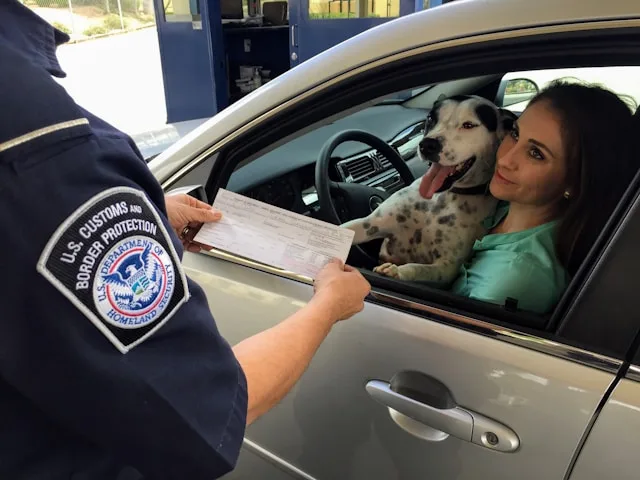Is VIN Verification Required for Every Vehicle?
If you’re buying or selling a vehicle, you’ve likely heard about VIN verification. But what exactly is it, and is it mandatory for every vehicle transaction? Let’s delve into this topic to understand its significance and whether it applies universally.
Understanding VIN Verification
Vehicle Identification Number (VIN) verification is a process where an authorized entity confirms the VIN matches the vehicle’s registration documents. This verification typically involves physically inspecting the VIN on the vehicle and comparing it with the documents to ensure accuracy. It’s a crucial step to prevent fraud, and theft, and ensure the vehicle’s legality.
In essence, the VIN serves as the vehicle’s unique fingerprint, containing information about its manufacturer, model, year of production, and other pertinent details. Verifying this number ensures that the vehicle matches its documentation and hasn’t been tampered with or misrepresented.
When VIN Verification is Required
VIN verification is often required in several situations. Firstly, when you’re registering a vehicle from another state or country, authorities may request VIN verification to ensure the vehicle meets local safety and emissions standards. This step helps ensure that vehicles brought into the state comply with its regulations and do not pose risks to public safety or the environment.
Additionally, if you’re transferring ownership, especially in private sales, VIN verification might be necessary to confirm the vehicle’s identity and prevent title fraud. By verifying the VIN during the transfer process, authorities can ensure that the new owner receives a clear title to the vehicle and that there are no disputes regarding its ownership history.
Legal Requirements
The necessity of VIN verification varies depending on your location and the circumstances of the vehicle transaction. In many states within the US, VIN verification is mandatory for registering an out-of-state vehicle or for certain types of vehicle transactions. However, the specific requirements differ from state to state, so it’s essential to check your local regulations.
States may impose VIN verification as part of their efforts to combat auto theft, prevent title fraud, and ensure compliance with safety and emissions standards. Apart from the utility of verifying a vehicle’s authenticity, states like California have specific guidelines that may require additional checks classifying the California VIN verification process. As mentioned before this could involve emissions testing or a closer inspection of safety features compliant with California’s stringent environmental and safety regulations.
Exceptions to the Rule
While VIN verification is common, there are exceptions. For instance, some states exempt certain types of vehicles, such as antique cars or trailers, from VIN verification requirements. These exemptions recognize that certain vehicles may have unique characteristics or historical significance that warrant different treatment under the law.
Moreover, if you’re buying a brand-new vehicle from a dealership, VIN verification might not be necessary since the vehicle’s VIN is already registered with the manufacturer and the authorities. In such cases, the dealership handles the necessary paperwork to ensure the vehicle is properly registered and titled in the buyer’s name. Even though VIN verification may not be required in all cases, it’s always a good idea to verify the VIN of any vehicle you’re buying to ensure its authenticity and avoid potential issues down the road.
Penalties for Non-Compliance
Failing to comply with VIN verification requirements can result in various penalties, including registration refusal, fines, or even legal repercussions. It’s crucial to understand and adhere to the VIN verification regulations in your jurisdiction to avoid any complications or setbacks in your vehicle transactions.
Authorities take VIN verification seriously because it helps maintain the integrity of the vehicle registration system and protects consumers from fraud and deception. By enforcing VIN verification requirements, they can ensure that vehicles on the road are properly documented and safe to operate, reducing the risk of accidents and disputes over ownership. Keep in mind that VIN verification requirements may change over time, so it’s essential to stay informed about any updates or changes in your local regulations.
Process of VIN Verification
The VIN verification process typically involves a certified inspector or an authorized entity examining the vehicle’s VIN, usually located on the dashboard or door frame, and comparing it with the registration documents. Once verified, the inspector may provide a certificate or sticker to confirm the VIN’s authenticity.
During the verification process, the inspector may also check other identifying features of the vehicle, such as its make, model, and odometer reading, to ensure they align with the information provided in the registration documents. This comprehensive inspection helps detect any discrepancies or signs of tampering that could indicate potential fraud or theft.
In conclusion, VIN verification is a critical step in ensuring the authenticity and legality of a vehicle, particularly in interstate transactions or private sales. While it’s not required for every vehicle transaction universally, understanding the regulations in your area is essential to avoid potential penalties or complications. Whether you’re buying, selling, or registering a vehicle, familiarizing yourself with VIN verification requirements can streamline the process and protect you from fraudulent activities. Always consult local authorities or seek professional advice if you’re unsure about VIN verification obligations in your jurisdiction.



